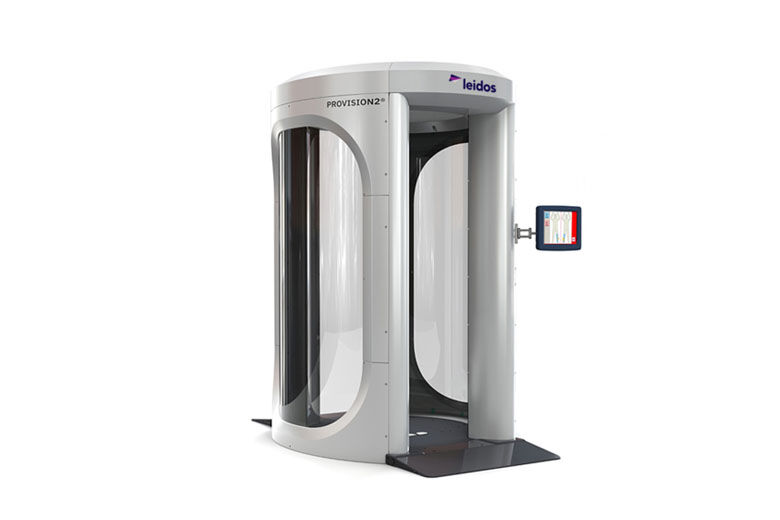When you go through security lines at the airport, it’s probably technology developed by Reston, Virginia-based Leidos that’s scanning you. And the company just received a new government contract that might make the process less intrusive for some passengers.
The new contract with the Transportation Security Administration is to upgrade its full fleet of ProVision Advanced Imaging Technology systems used at airport security checkpoints. It will include new artificial intelligence-based algorithms that Leidos says will significantly reduce false alarms.
Those are the “hands over the head” scanning devices passengers enter while their carry-on baggage is being scanned separately.
“These new algorithms will help reduce false alarms that lead to unnecessary pat downs and checkpoint inefficiencies,” said Brad Buswell, senior vice president and operations manager at Leidos.

The software update will take several months and will include more than 1,000 ProVision systems.
Leidos has been providing transportation screening equipment for TSA for 14 years, including installation and maintenance of airport security checkpoints at all federalized airports, as well as security support for special events, such as presidential inaugurations and spectator events.
In 2021, the company received a new TSA contract for $471 million for on-site coordination, design support, planning and execution of screening equipment installations, relocations and removals.
Leidos had $14.4 billion in fiscal 2022 revenue, and has 45,000 employees worldwide. Its government contracts include the departments of Defense, Homeland Security and the intelligence community.
Leidos also named a successor for its retiring CEO. Thomas Bell, currently chairman and CEO of Rolls-Royce North America, will succeed current Leidos CEO Roger Krone, who will retire in May.
Leidos became a stand-alone, publicly-traded company through a split of McLean-based SAIC in 2013.








